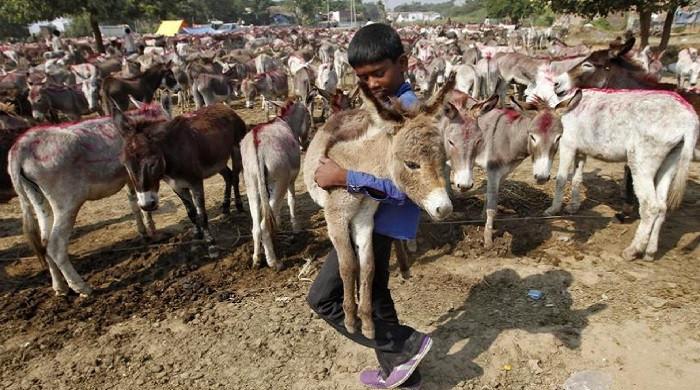Pakistan's Donkey Trade Booms with China Demand
The donkey skin trade has significant implications for Pakistan's economy, environment, and animal welfare, with the country's donkey population expected to meet China's growing demand for e-jiao. Sustainable alternatives, such as lab-grown alternatives or cellular agriculture, may offer a solution, but their development is still in its infancy.

Pakistan has emerged as a primary trading partner of China for animal hides, particularly donkey skins, driven by the demand for traditional Chinese medicine, with the country's donkey population rising to 6.047 million.
The ejiao industry, which uses donkey skins to produce a gelatin, has been linked to the slaughter of millions of donkeys worldwide, with estimates suggesting that five million are killed annually. The trade has raised concerns about animal welfare, public health, and the environment, with experts calling for sustainable alternatives to meet the demand for ejiao.
In Pakistan, the donkey skin trade has been linked to the country's economy, with the government seeing it as a potential source of revenue. However, the trade has also raised concerns about the welfare of donkeys and the impact on the country's poor, who rely on the animals for their livelihoods. The Pakistani government has signed protocols to enhance agricultural exports to China, but lacks specific legislation addressing the donkey skin trade.
The donkey population in Pakistan has increased by 109,000 in a year, driven by growing demand for donkey meat and hides in China. The country's total livestock count has also increased, with significant rises in buffaloes, goats, and sheep. The donkey population is expected to meet China's demand for e-jiao, which requires 5.9 million donkey skins annually.
As the donkey skin trade continues to grow, concerns about animal welfare, public health, and the environment remain. The Pakistani government must develop sustainable alternatives to the donkey skin trade and address the issues surrounding it, to ensure the welfare of donkeys and the people who rely on them.